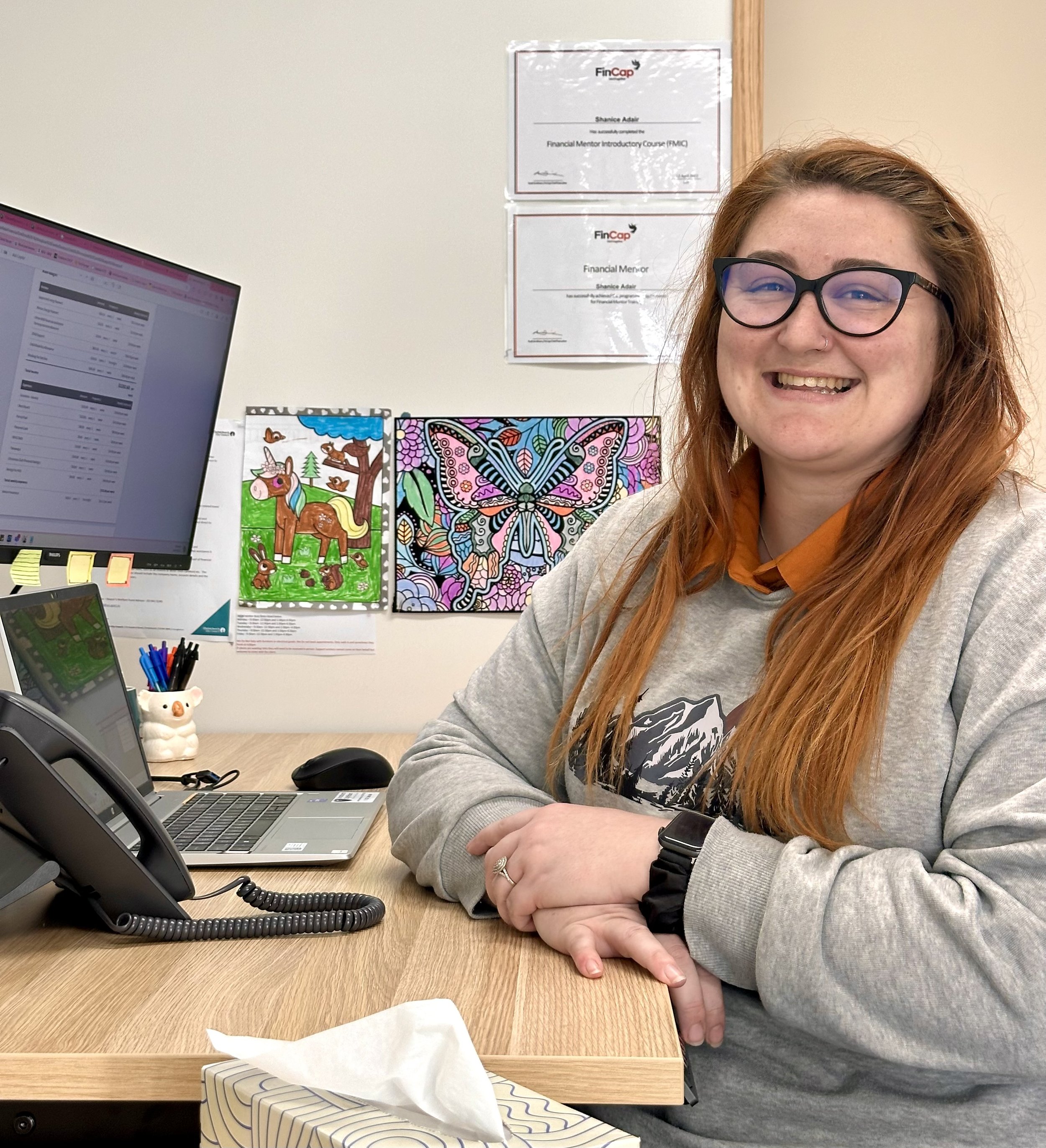When poverty hits hard
Men, women, old and young come to us in crisis when they are consumed by debt.
Andie* is massively in debt because she is paying off dental work needed after a long-gone partner punched her in the face. After rent, Christine*, with two children, has $200 a week for all their food, power, phone, clothes, transport, health and school costs and she is making weekly loan payments to Winz from previous hardship advance grants. Caroline*, a single mother, had medical problems, left her job, her car broke down, she piled up debt on credit cards, now she has mental health problems from worrying and believes a second hardship grant from her dwindling Kiwisaver is her only hope.
These people are in crisis and hundreds more like them come to the Christchurch City Mission’s Financial Mentor Service to find support, advocacy with lenders, and help creating a plan that gives them hope.
At the same time they also discover they can access many other City Mission services because our wrap-around service approach acknowledges lives and problems can be very complex.
All these people are coming to us for help because even when they have stripped their life right back to just surviving, they still don’t have enough to cope with daily life.
You’ve heard a lot about the cost-of-living crisis and are probably feeling it yourself, but it can look like this for the people we see: now $100 is needed for food that would have cost $85 previously. And they need that $100 to help pay the increased power bills. So meals get skipped and they are faced with the choice of “heat or eat”.
Acting when we spot a problem
Our team of three financial mentors work from rooms right alongside the shelves and trolleys of our self-serve foodbank. Because of the demand on our foodbank, we can only provide food parcels once every seven week - it is a crisis service to help people at particularly tough times.
But if we spot an individual or family coming to us every seven weeks, then that’s a flag, and we steer them to our financial mentors for a closer look at the situation.
Last year when the Government changed its model around supporting financial mentor services, support funding was withdrawn from a third of the existing budget services and many were forced to close. But they continued to support us. They could see how our financial mentor service was a vital part of our wrap-around services to help people.
Our financial mentors take referrals from all our internal services, especially the foodbank as mentioned, and they are also essential to our transitional housing residents who are being readied for a new life in permanent housing.
The financial mentors will also advocate on behalf of our clients with lenders to get more fairness around repayment demands. They know the little tips that can help, like financial lenders can be asked to provide hardship options, and that internet for schoolchildren can be paid for by the Government.
Sometimes the help the financial mentors give is as straightforward as preparing a professional budget so clients can present a case to get a better position on the housing lists.
We are always looking at ways we can help more so clients have the best chance possible of doing better now and into the future. After 95 years looking after Cantabrians, we know complex problems require complex answers.
*Names and some details have been altered to protect privacy.
‘I can actually give them hope’
Shanice is one of our three financial mentors and she says she usually has a box of tissues on the desk where she interviews clients.
It’s sad how often the tissues are needed to dab eyes.
Shanice finds many clients will start sobbing when they are confronted by how much of a money problem they have. They have come stressed and worried anyway, but to assess the size of the problem she needs to ask a series of questions and as the numbers build, it will suddenly hit them how bad things are.
“Money is everything to people. Money puts a roof over our head and food in our stomachs. It gets us from A to B. And I feel when you're stressed about money, you're stressing about providing for yourself or your family, and that stress is just so different to other kinds of stress I've seen with people.”
But she also reassures them that there are things that can be done to help manage debt and they have come to the right place to share the load and get a plan together.
Shanice has a special insight into what our clients are facing because of her background. Most come to us overwhelmed with debt that has been worsened through high interest loans and buy now/pay later contracts.
Before Shanice worked with the City Mission as a financial mentor, she had worked for 18 months with Work and Income and before that she worked for five years with a short-term lending business.
“Here, it's like I can finally do the good for the people I've been seeing for the past seven years,” she says.
“People come in here and I can actually give them hope. I can make them a goal budget and show them the steps on how to get there. Being able to see there's a change I can do for people from when they walk in the door to when they leave is a huge thing for me.”


